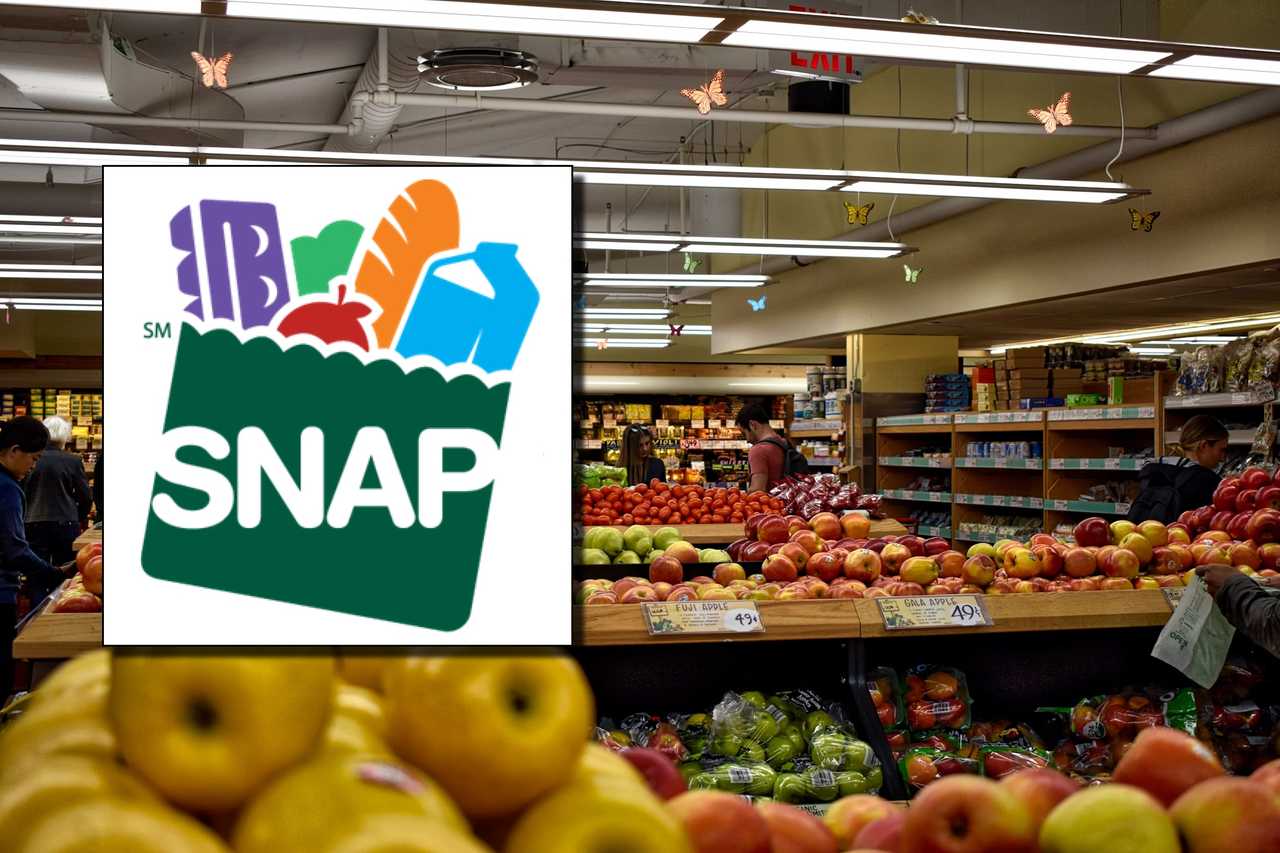
By Chris Spiker From Daily Voice
Low-income families across the Northeast could lose access to food assistance if the federal government shutdown continues.
States like Connecticut, New Jersey, New York, and Pennsylvania have warned that they may have to suspend Supplemental Nutrition Assistance Program benefits if the shutdown doesn't end on or shortly after Saturday, Nov. 1. SNAP, which is sometimes called "food stamps," provides monthly electronic benefits that can be used to buy groceries.
The shutdown, already the second-longest in US history, began on Wednesday, Oct. 1, when Congressional Republicans and Democrats failed to pass a short-term deal to keep the federal government funded. The longest shutdown is also the most recent, lasting 34 days in December 2018 and January 2019.
Ronald Ward, who's the acting head of SNAP, sent out a warning to state health officials earlier in October, ABC News reported.
"If the current lapse in appropriations continues, there will be insufficient funds to pay full November SNAP benefits for approximately 42 million individuals across the nation," Ward wrote in a letter.
In New York, the state's Office of Temporary and Disability Assistance said on Wednesday, Oct. 22, that the shutdown has already delayed the start of the Home Energy Assistance Program (HEAP).
"Applications for Public Assistance and SNAP are continuing to be accepted, benefits are being provided, and use of benefit cards is not impacted at this time," a message on the state's website said. "If the shutdown continues into November, benefits for SNAP could be delayed."
Connecticut's website shows a similar alert.
"The Department of Social Services has received notice from the US Department of Agriculture (USDA) Food and Nutrition Services that if the federal government shutdown continues into November, there will not be enough funds to pay November Supplemental Nutrition Assistance (SNAP) benefits," the message read. "We will continue to add information on this site as the federal guidance changes or program operations are affected."
Pennsylvania has already halted new payments.
"Starting October 16, SNAP benefits will not be paid until the federal government shutdown ends and funds are released to PA," the commonwealth's website said. "We will notify SNAP recipients when payments can resume, and we will let you know when to expect SNAP payments."
New Jersey also warned about a potential benefit stoppage.
"New Jersey was notified by the federal government that if the shutdown continues, November 2025 SNAP benefits may not be available on time," the state's website said. "It is unclear if SNAP benefits loaded on your Families First EBT card prior to October 31, 2025, will be able to be used after November 1, 2025."
The National WIC Association is also warning that nearly 7 million parents and kids could lose access to Women, Infants, and Children Program benefits in November.
"Even short-term disruption to WIC's healthy food benefits, lactation support, nutrition education, screenings, and referrals can have long-term negative impacts on families," said Georgia Machell, the association's president and CEO. "Without additional funding, state WIC agencies may be forced to take drastic measures that prevent families from accessing the services they need, such as halting food benefits. This would directly jeopardize the health and nutrition of millions of mothers, babies, and young children."
The Center on Budget and Policy Priorities is urging the Trump administration to immediately use emergency funds to keep benefits alive for more than 40 million low-income Americans.
"Nearly two-thirds of the funds needed for a full month of benefits are available in SNAP's contingency fund and must be used when regular funding for SNAP runs short," the think tank said. "The administration must release those funds immediately as SNAP law requires, to ensure that families can put food on the table next month."
The shutdown comes as Republicans control the White House and both chambers of Congress. Senate Democrats opposed a House-passed stopgap bill, pushing for an extension of Affordable Care Act subsidies.
Democrats are also seeking to reverse Medicaid cuts in the GOP-passed spending plan previously called the "One Big Beautiful Bill" that President Donald Trump signed into law in July. Republicans argue that the federal government should be reopened before starting negotiations.
The Trump administration has posted partisan messages on many agencies' websites, including the USDA.
"Due to the Radical Left Democrat shutdown, this government website will not be updated during the funding lapse," a message on the USDA's website read. "President Trump has made it clear he wants to keep the government open and support those who feed, fuel, and clothe the American people."
Even if the government shutdown is resolved before many benefits are impacted, SNAP is still set to undergo major changes. In November, SNAP will have new work requirements and eliminate exemptions for adults between the ages of 55 and 64.
According to the USDA, 73% of SNAP recipients had a gross monthly income at or below the poverty level in fiscal year 2023.

 Daily Voice
Daily Voice
 Reuters US Politics
Reuters US Politics Associated Press US News
Associated Press US News CBS Sacramento Dixon News
CBS Sacramento Dixon News The Public's Radio
The Public's Radio Raw Story
Raw Story Elite Daily Relationships
Elite Daily Relationships Atlanta Black Star Entertainment
Atlanta Black Star Entertainment